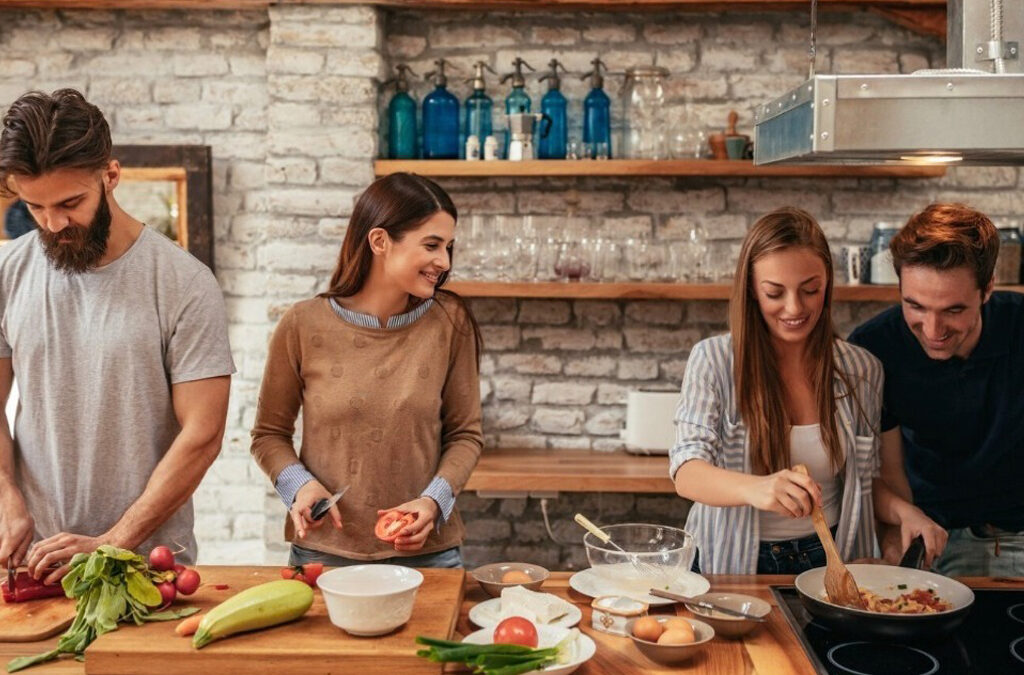
The Economics of Gorilla Permits: Where Does the Money Go?
October 10, 2025
Rwanda vs Uganda Gorilla Trekking Price: Which Destination Offers More Value?
October 11, 2025Immerse Yourself in a Local Cooking Class in Uganda or Rwanda

A cooking class in Uganda or Rwanda offers a unique and immersive way to connect with local culture. Beyond simply learning to prepare traditional dishes, this experience allows you to engage with daily village life, understand local customs, and appreciate the traditions that have sustained communities for generations. From farming in lush fields to gathering water and firewood, you become part of the daily rhythm of rural life, making this more than just a culinary experience—it’s a cultural journey.
Meeting Your Host Family
The day begins as you are welcomed into a local household, greeted with warm smiles and genuine hospitality. Your host family introduces you to the routines of village life, providing insight into their daily chores and responsibilities. You participate in essential activities, such as collecting water from the village well and gathering firewood for cooking. These simple tasks, though routine for locals, offer travelers a deep appreciation of how communities thrive using natural resources and traditional methods.
Harvesting Fresh Ingredients
After becoming acquainted with your host family, the adventure continues in the garden, where you harvest fresh, organic vegetables. Depending on the season, you may pick beans, banana plantains, potatoes, or leafy greens. The hands-on experience in the garden allows you to connect with the land, observe sustainable farming practices, and gain firsthand knowledge of how these ingredients form the foundation of local cuisine.
Following the garden harvest, you can take a stroll through the vibrant local market. Here, you shop for additional essentials, such as tomatoes, onions, spices, and salt, learning how locals select ingredients and negotiate prices in a lively, authentic setting. This step not only enriches your cooking knowledge but also immerses you in the social and economic life of the village.
Preparing Traditional Dishes
Returning to the host household, the cooking class moves into full swing. You start by peeling and preparing the harvested vegetables and fruits. Next comes the traditional three-stone fire, an ancient cooking method that has sustained generations. Learning to manage the fire, adjust the heat, and cook evenly over open flames is both practical and symbolic, connecting you to centuries of culinary tradition.
As you cook, your host family guides you step by step, sharing local techniques, seasoning secrets, and cultural insights. You learn to balance flavors, appreciate the simplicity of fresh ingredients, and understand why certain foods hold special meaning in Ugandan and Rwandan households. Whether you prepare matoke (steamed or boiled banana plantains), fresh vegetable stews, or other traditional delicacies, each dish tells a story of local heritage.
Sharing Stories Around the Fire
The final part of the cooking class is perhaps the most memorable. Once the meal is ready, you sit around the fire with your host family, enjoying the fruits of your labor. This communal dining experience provides a rare opportunity to exchange stories, learn about local customs, and listen to personal anecdotes from family members. The warmth of the fire and the intimacy of shared food create a sense of connection that goes beyond mere observation.
Through conversation and laughter, you gain insight into village life, local beliefs, and family traditions. The experience fosters a genuine appreciation for the culture, highlighting how meals in Uganda and Rwanda are more than sustenance—they are a celebration of community, resourcefulness, and heritage.
Flexible Locations and Duration
Cooking classes are organized in villages around iconic destinations such as Bwindi Impenetrable Forest and Volcanoes National Park. The class typically lasts around two hours, making it an ideal cultural activity to include in your travel itinerary. Whether integrated into a larger safari, trekking adventure, or cultural tour, the experience offers a meaningful pause to engage with local life and return home with more than just memories—you leave with stories, skills, and a deeper understanding of the communities you visit.
A Cultural Experience to Remember
Participating in a cooking class in Uganda or Rwanda is more than learning recipes; it’s an invitation to step into the heart of a village. From working alongside locals in the fields to preparing food over a traditional fire, every moment brings a sense of connection and discovery. By the time you finish the class, you not only take home culinary skills but also an authentic understanding of daily life, traditions, and the resilient spirit of local communities. This hands-on experience transforms a simple meal into a celebration of culture, community, and shared human experience.
